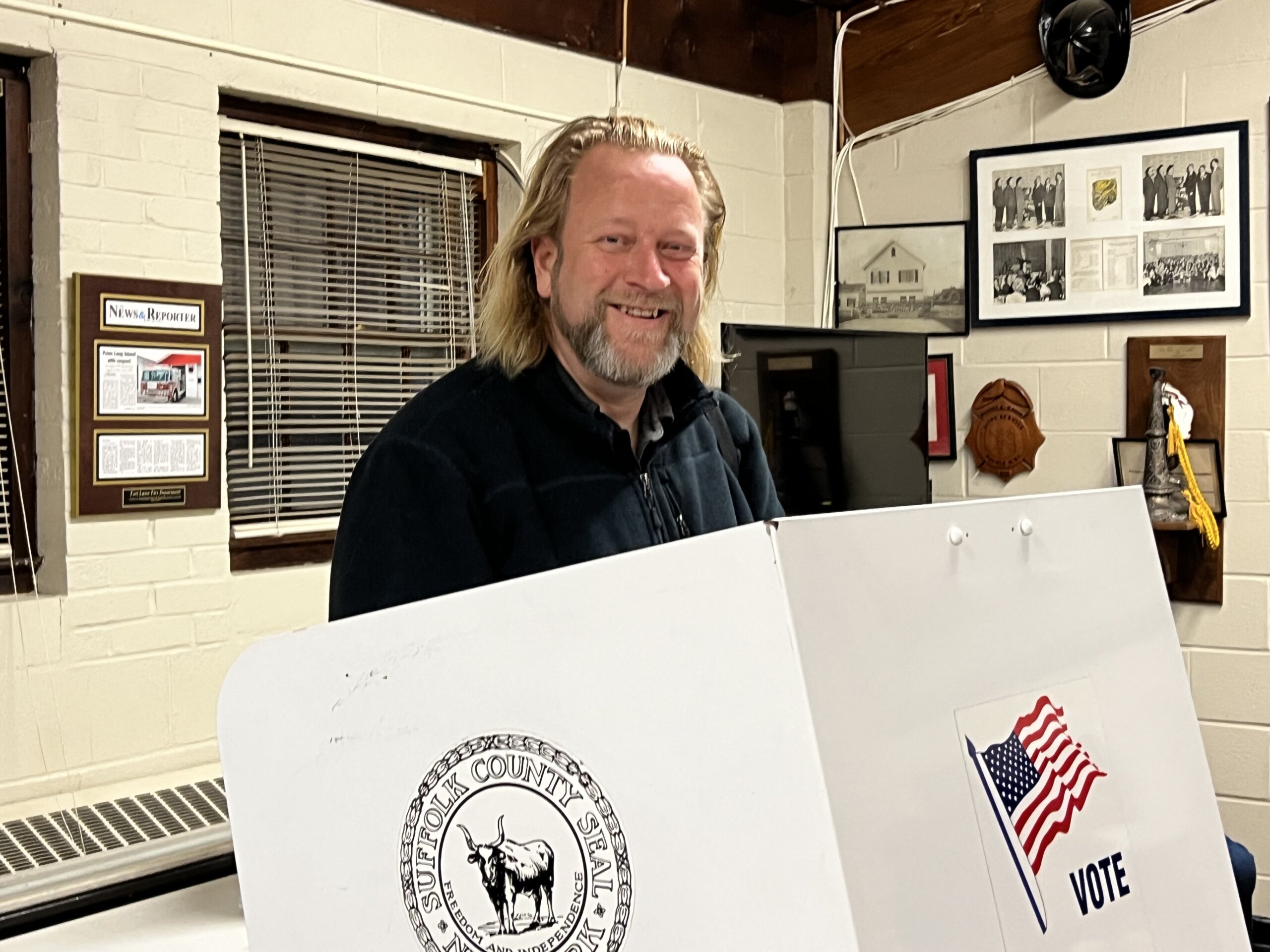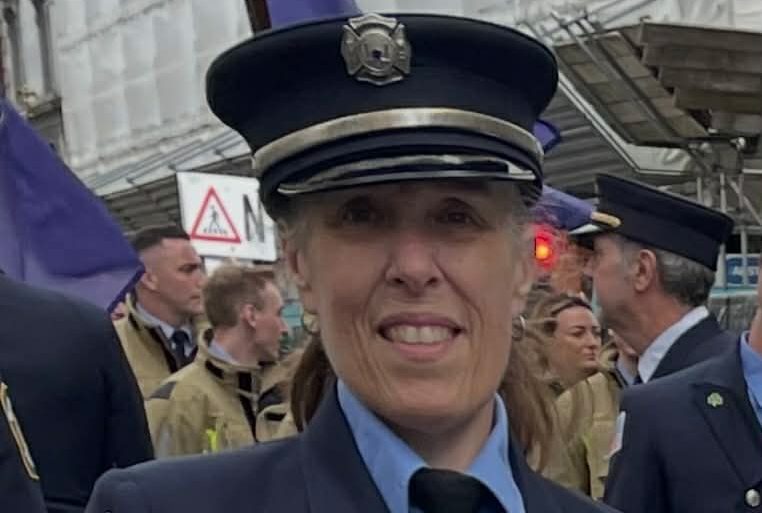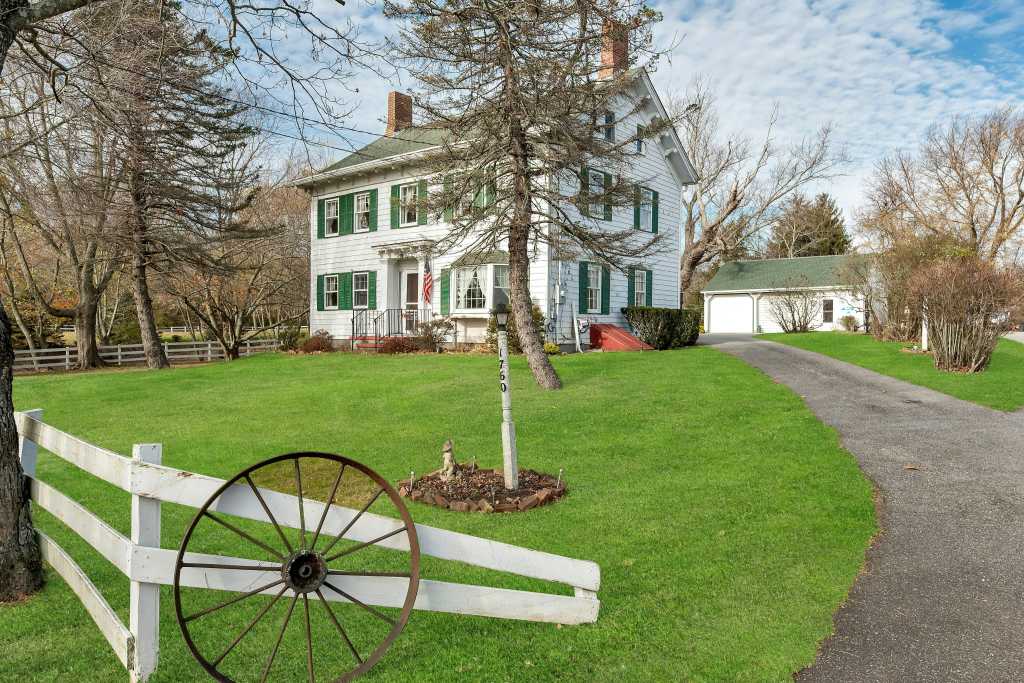For New Greenport Mayor Kevin Stuessi, It’s Full Speed Ahead

Having won his election by a comfortable margin over incumbent mayor and longtime local politico George Hubbard, new Greenport Village Mayor Kevin Stuessi began serving what he says will be a single four-year term in April.
A real estate development consultant, Stuessi grew up in the Almaden Valley in Northern California. He raised his children — two daughters who are now college age — primarily in the resort town of Sun Valley, Idaho. He later moved to New York City and eventually found his way to the North Fork.
Six years ago, Stuessi began living in Greenport as a commuter, spending long weekends in the village and catching a 5:20 a.m. Long Island Rail Road train back to the city on Monday mornings. When the pandemic hit in 2020, he joined the hordes of fleeing urbanites who moved to the North Fork full time. Greenport is now his home.
For the time being, Stuessi says he has put his private-sector professional life on hold and is focusing all his energy on his duties as mayor of the village.
We caught up with the mayor in late August and asked him to assess his first four-and-a-half months on the job.
A Chat with Greenport Mayor Kevin Stuessi
You ran on a list of priorities that included controlling over-development on the waterfront commercial district, increasing enforcement against short-term rental violations and making village hall more efficient. How have those priorities translated into tangible actions so far?
We’ve made significant progress on the list of things that I set out to accomplish in the first six months. The biggest one has been implementing a development moratorium and then delivering updates to the code for the waterfront commercial district. Our board is going to be voting on updated code changes. Once the codes are updated and implemented, we will be able to protect the character of the village while improving the historic working waterfront.
What are some specifics of the moratorium that the board is in the process of implementing?
The moratorium is on any new large-scale development in the commercial waterfront district. We’ve had close to 10 ‘ordinary’ businesses that have opened or are in the process of opening: new clothing stores, a yoga studio, a couple of jewelry shops, a new art gallery — those have been able to move through. But any applications for larger scale development and change, such as a hotel, have been put on hold due to the moratorium.
The problem of over-development in the village always seems to be top of mind for residents?
Exactly. Over-development is one of the biggest sources of concern in the community. Before I ran for mayor, I had pushed for a development moratorium as a private individual and knocked on close to 200 doors in the village. That’s sort of how I got started in local politics. I was trying to push the prior administration to update our codes because I was concerned about things like our old historic movie theater being turned into a hotel, for example.
What type of businesses would you ideally like to see more of on the Greenport waterfront?
We’re one of the few communities that still has a true historic working waterfront. So I’d like to see more businesses and educational facilities centered around aquaculture: things like a marine science center or a boat-building school, for example. There’s a lot of federal and state money for development that we have either procured or are in the process of procuring. One of the most important things I put in our budget was the money to hire a full-time economic development person. We’re currently trying to find the best possible candidate for that role.
How are you addressing the problem of abuse of the village’s laws on short-term rentals?
We did an analysis of a number of different companies that offer short-term rental management software, narrowed it down to three companies, then chose the company we believed was the best. We signed a contract with them and we’re currently in the process of uploading all of our rental permits into the software so that we’ll be able to effectively manage it. Right now it’s purely a paper process, and it’s hard to find people who might be renting illegally. The software that we’re using automatically goes out and scours every single rental website and immediately notifies us of any rental violations, which allows us to track it much better.
In the interim, we’ve really stepped up enforcement the old school way: things like listening to neighbors who are filing complaints and then doing the research that’s needed to figure out when we need to go out and issue citations, when applicable.
How far along are you with the implementation of the rental management software?
We’re about 50% implemented now and we expect to be fully operational by mid-fall. There’s a portion of the population that rents legally, and I have no issue with that. It’s the ones that are really flouting the existing laws and buying up houses as businesses and renting them exclusively for less time than is required by village code.
We’ve also budgeted to hire an additional code enforcer, so we’re literally doubling our code enforcement capacity by going from one to two employees.
What other steps has the mayor’s office taken to improve the quality of life in Greenport?
As a private individual, one of my biggest frustrations was the inability to pay my utility bill online. It was the only bill I couldn’t just put on autopay. As we did with our rental management software, we went through a process of researching companies that could manage (the online bill payment function), chose one, signed a contract, and we’re in the process of implementing the service. We should have it up and running within the next 45 days.
Having spent the majority of your life in the West, you’ve only lived in Greenport for about six years. When you ran for mayor, did you feel a degree of suspicion about your candidacy from the Greenport community?
No. And I think that was one of the deciding factors in why I made Greenport my home. The community really embraced me as a friend and a neighbor. The people were clearly ready for some change, and the next few years will prove whether I can deliver or not. I committed to running for one term and getting as much as I can get done in four years, then hopefully handing off the keys to somebody else.
Before being elected mayor, you had never held public office before. When you first began your term, was there anything about the job that surprised you?
I think I was fairly well prepared in that I had been participating in local village government as a private citizen, going to all the meetings, etc. But I wasn’t necessarily cognizant of all the financial needs of the village, particularly the infrastructure improvements that needed to be made. An observing eye sees a lot, but until you walk into a building or get down and inspect something at a deeper level, you don’t necessarily realize the extent of some of those needs.









